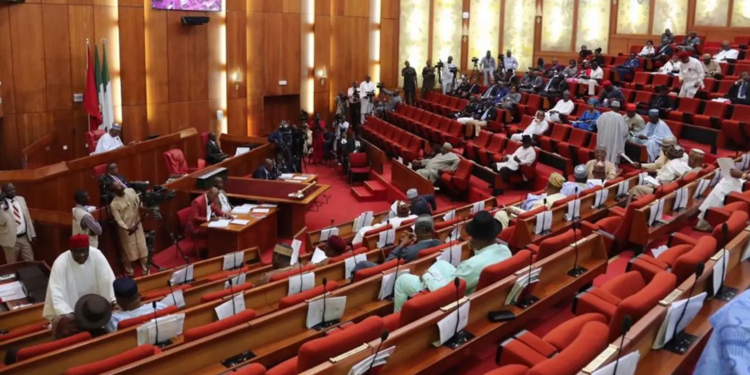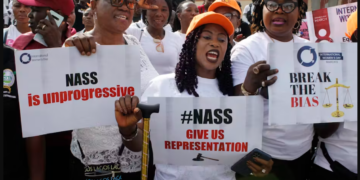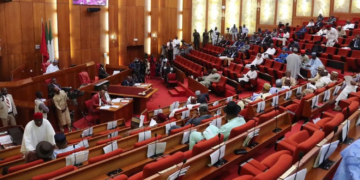The Senate on Tuesday stepped down deliberation on the revised N10.509 trillion 2020 budget forwarded to it by President Muhammadu Buhari for consideration.
The action followed the inability of the Chairman of the Senate Committee on Appropriation, Senator Jubrin Barau, to submit the team’s report on the budget.
Addressing his colleagues during plenary in the upper chamber of the National Assembly in Abuja, the lawmaker attributed this to the failure of the Budget Office to capture the entire N500 billion intervention fund for COVID-19 in the Appropriation Bill.
According to him, while N314 billion is captured as part of the intervention fund, the balance of N186 billion proposed for the health sector was not captured in the revised budget.
Senator Barau said the committee informed the Budget Office of the omission last week, revealing that the budget office, in its response, explained that there was no need for the entire N500 billion to be captured in the budget since it was fully highlighted in the MTEF/FSP documents already passed by the Senate.
The lawmaker added that following this response, the committee rejected the excuse in line with Sections 80 and 81 of the 1999 Constitution which empowered the National Assembly to appropriate every single kobo for the executive before spending.
In his remarks, Senate President Ahmad Lawan directed that those responsible for the budget documents should provide them without further delay.
He also asked the Senate Appropriation Committee to have the documents printed on Tuesday (yesterday) unfailingly, lay it before the lawmakers today for final consideration tomorrow.
Lawan said: “Let me make this comment. I will advise those responsible for putting budget estimates for revised or whatever to be meticulous and responsible.
“The National Assembly cannot be a destination where lack of efficiency in somebody’s job would be addressed. We are supposed to have the entire bill presented us and you did the right thing by asking and insisting that a letter be written to specifically address that problem that there was an omission on their side.
Senate has mandated its Committee on Privatization to investigate the operations and non-performance of paper mills sold by the Bureau of Public Enterprises, BPE, to private interests.
The Upper Chamber also rejected a call on the Federal Government to establish Federal Paper Mills in each geo-political zones of the country.
The decision was reached sequel to the consideration of a motion on “the need to revive the Moribund Paper Mills in Nigeria.”
Sponsor of the motion, Senator Stephen Ekpenyong (PDP – Akwa Ibom North West) recalled that Nigeria’s three Paper Mills: Nigeria Paper Mill, NPM, Kwara State; Nigeria Newsprint Manufacturing Company, NNMC, Akwa Ibom State; and Nigeria National Paper Manufacturing Company, Ogun State, were established by the Federal Government in the 1960s and 1970s.
According to the lawmaker, the mills produced corrugated cartons, sack craft paper, kraft paper, linear and chip board as well as fluting media to meet the country’s needs in writing and printing papers.
Ekpeyong noted that the Paper Mills were privatized by Government as a result of non-performance and lack of adequate funds to run them, adding that “paper production is one of the major activities regarded as a pointer to industrialization and educational development worldwide, making the sector a major booster to our economy.”
He expressed concern that “the sector has gone moribund since privatization, leaving the country with another huge income deficit.
Ekpeyong said: “The companies who bought these mills have either abandoned them or not been able to revive them to full capacity making the country depend on imported paper
“Recent statistics by the Raw Material Research and Development Council, RMRDC, indicate that Nigeria lost over N800 billion annually to paper importation, while the Printers Association of Nigeria put the figure at $1 trillion US dollars annually through the importation of over one million metric tons of paper at the cost of $1,000 US dollars per tones.”
According to him, the Mills formerly had a workforce of over 300,000 people and an investment worth over N100 billion naira before the privatization policy by the government.






Discussion about this post